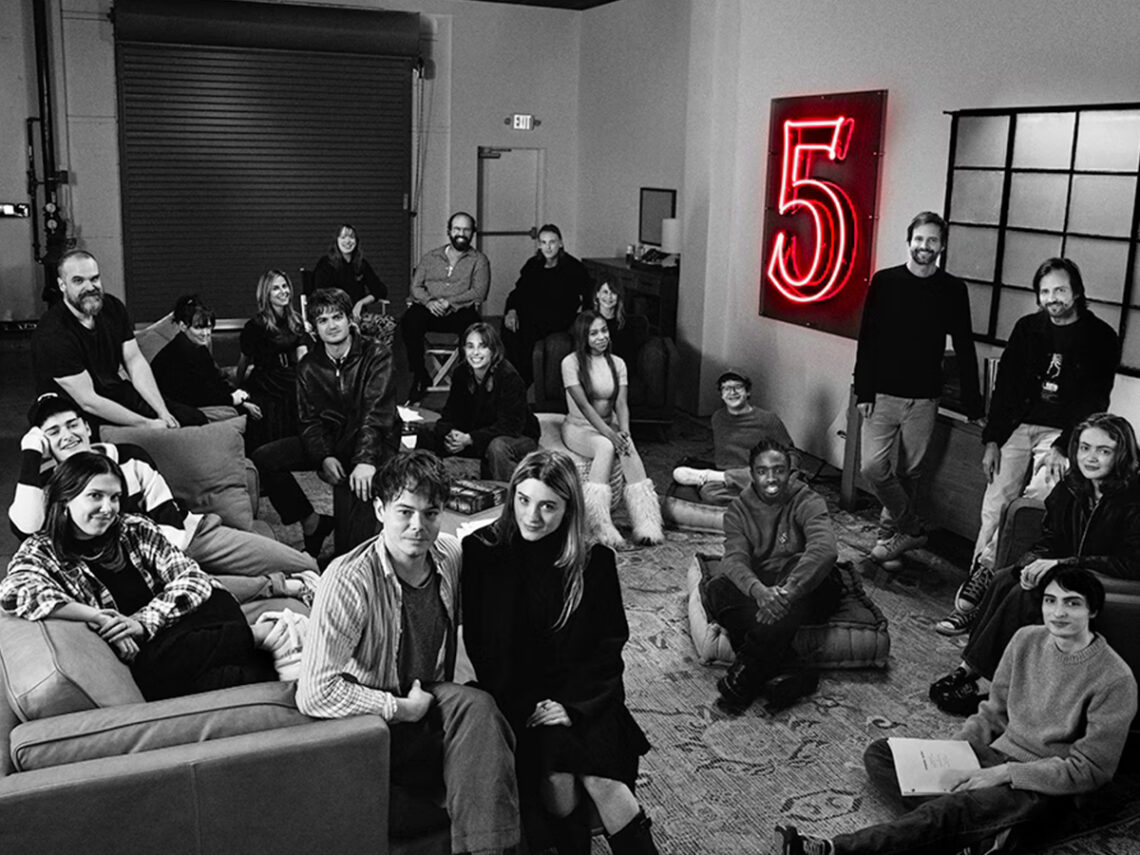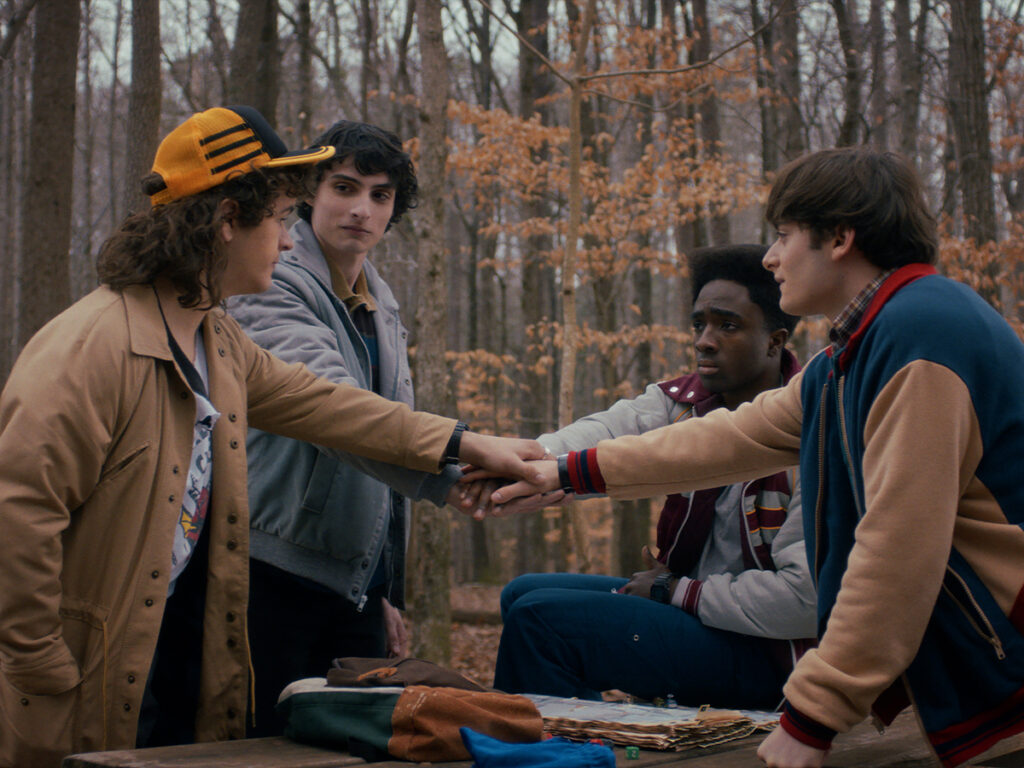
Five reasons the long run of ‘Stranger Things’ could be a good thing and five it won’t
When Netflix encouraged viewers to hop on the sci-fi train with Stranger Things, they couldn’t resist the otherworldly appeal back then. Now, nine years down the line, as the platform prepares to turn the page on the last chapter, there’s a strange sense of polarity that troubles the audience.
Years ago, upon Upside Down’s induction in the world, fans were also greeted with a squad of bike-riding teenagers, who would eventually become the guardians of Hawkins, Indiana. While Netflix has upped the ante of anticipation with each new season, digging deeper into the archives of the Dungeons & Dragons monster canon, the fifth and final instalment of Stranger Things leaves just as many concerned whether it could, after all, be worth all the wait.
With characters outgrowing their teenage selves and the audience’s attention span shrinking by the minute, dark clouds hover over the reception of what’s to come. But just as there are two sides to every coin, the long run for Stranger Things has pros and cons.
If you’re convinced by one or the other, here’s why you should save some room for reconsideration.
Five reasons the long run for Stranger Things is good
More space for characters to grow
The frenzy around Stranger Things doesn’t only stem from its gripping storyline. It emanates from the characters, who each form the heart of the show. While the mini-series and limited series format may reign in the contemporary showbiz landscape, nothing hits home like a show that leaves room for characters to evolve. Eleven, Mike, Will, Dustin, Max, and Lucas are no longer just a group of kids we met onscreen; rather, they are part of our reality. They are characters with whom we’ve grown up.
They may not be teenagers anymore, but watching them transform from young, curious kids to mature, complex individuals has nurtured an in-depth emotional connection, allowing the reel to seep into the real.
Growing up with characters
Ageing characters are one of the biggest concerns that have raised eyebrows with the long-running Netflix series. Yet, what many fail to realise is that they, in turn, resonate with its growing audience. While the show tackles a looming monster threat on the surface level, it grapples with the converging themes of identity, loss, and growing up facing one’s inner and outer demons in that shared passage of time.
The show has not only evolved; it has evolved with its fans. Hence, despite the concerns around its ageing characters, it remains undeniably culturally relevant in the contemporary showbiz landscape.
Building up the lore
With a longer run, writers have seized the opportunity to construct a story far more intricate than it started with. Stranger Things has allowed its creators to weave backstories and world-building, offering fans the scope to explore the supernatural nitpicks, like the Upside Down, in greater depth. The show may have taken its own sweet time to build on existing lore, however, it has done so in a way that continually surprises viewers with unforeseen twists.
But Netflix didn’t just stretch the canon without reason. They allowed fans enough time to digest these twists and turns, ensuring they are well-prepared for the final showdown.
Increased cultural impact and chances of a record-breaking finale
There are many shows that come and go, oblivious to fans at times. However, the nine-year run has allowed enough time to solidify this one’s place in popular culture, making its cultural impact stronger with every season. By now, it’s safe to call the Netflix series a modern classic and that wouldn’t be possible without a long run like this.
The show has broken records with each outing. And now that it’s about to come full circle, fans can expect a deserving wrap-up, as evident with its season-wise build-up.
Resurgence of the long series format
While fans love the limited series format that easily clubs into our everyday viewing schedule, Stranger Things has prominently contributed to the resurgence of the long series format. Once upon a showbiz time, a long series format was the only way to go.
And now, thanks to this and a few other Netflix shows, fans can relive the magic of well-crafted storytelling and extended influence, demonstrating a striking rebellion against contemporary formats of narration.

Five reasons why the long run for Stranger Things is not a good thing
Likelihood of creative fatigue
The more they stretched Stranger Things seasonally, the more fans loved the story with its unpredictable set of curveballs. With each season, the creators introduced fresh jump-scares, but in the process, they also risked creative fatigue, making it difficult to maintain the same level of energy. While that could end up churning diminishing returns, it remains to be seen whether the show feels fresh even this time around.
Potential audience fatigue
Stranger Things has many intricate layers, coupled with an equally rich backstory. Through every season, the show has strengthened the established story. But with the audience experiencing long gaps between every season, it’s easy to lose interest or forget plotlines that are crucial to its heavily teased full-circle moment.
This could, in turn, affect a smooth reception of the series. But, most importantly, it could loosen the threads of curiosity, revealing a gap in the branches that connected the tree.
Loss of original character dynamics and appeal
The original chemistry between the core cast is one of the many things that made Stranger Things a must-watch title. However, nine years down the line, not only have fans shared their frustration with the characters becoming less believable as teenagers from high school, but the show has also gambled with the possibility of the cast outgrowing themselves on screen.
While Stranger Things will inevitably address the time gap, it does risk the authenticity that fans fell in love with in the first place.
Unanswered questions
Stranger Things is not a stagnant story. It has been built meticulously every season. Yet, as the show digs deeper into convoluted subplots or unexplained phenomena, many loose ends remain to be addressed in the final season. Without a credible justification, the Netflix series might confront aversion. But with so much on the plate, worries of overlooking pivotal plot points also concern viewers.
A final season that’s not up to the mark
Although it took a leap of faith in stretching its story across five seasons over nine years, every instalment has been a highlight. However, now that it has set a benchmark of its own, only the final season can surpass it. But since overstayed welcomes often end up in lacklustre conclusions, with a nine-year build-up, nothing less than a sky-high ending will satisfy the viewers’ decade-long appetite.
But since Stranger Things has taken many such risks with bigger payoffs, it is most likely to end with a win, regardless of the mounting worries.